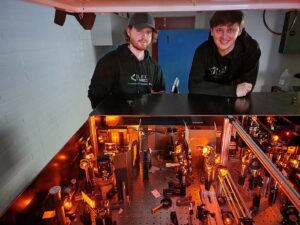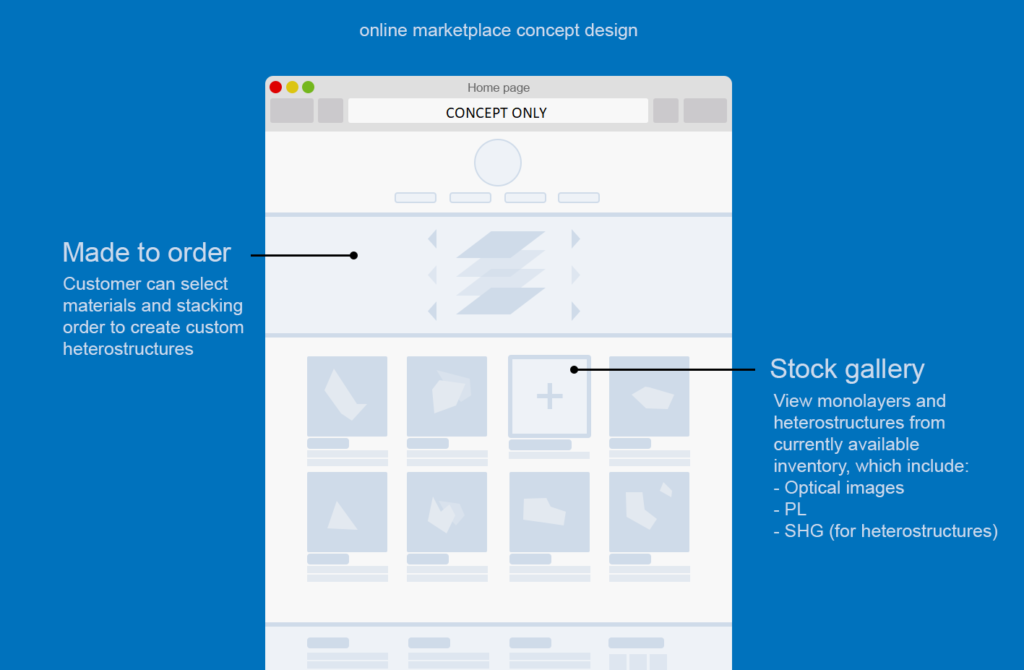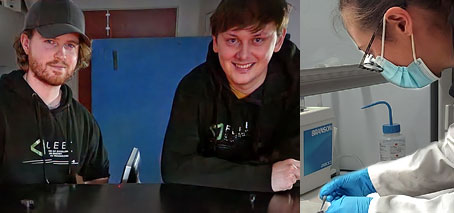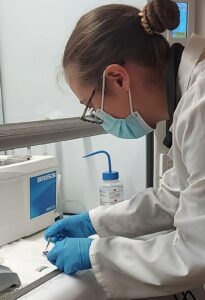
Swinburne co-founders Mitch Conway (left) and Jack Muir, with some of the optical characterisation equipment used in the project
First project approved for FLEET Translation Program funding
PhD candidates Mitch Conway, Abby Goff, and Jack Muir have recently been awarded $31,000 in FLEET’s first round of funding from the FLEET Translation Program (FTP). Their cross-node collaboration between Swinburne and RMIT aims to create a catalogue of high quality 2D materials, namely transition metal dichalcogenides (TMDs) and their heterostructures. The project will develop prefabricated samples available for purchase on a novel online sales platform which will include a series of optical characterisations, providing confidence that what you see is what you get.
The team is interested in exploring the feasibility of developing a start-up within the advanced materials manufacturing sector in Australia, believing they have discovered a unique approach in providing pre-characterised samples for researchers, which complements their expertise.
Abby, co-founder from RMIT says, “The aim of this service is to minimise time needed for in-house synthesis, freeing up researchers time to actually work on the projects that really matter to them”.
Exfoliation and characterisation of TMDs is time consuming, requires experience, and can be difficult to obtain for research groups unequipped for sample synthesis.
“We discovered a FLEET researcher will wait approximately 3 months to acquire a desired sample, either through collaboration or by making it themselves” says Swinburne student and co-founder Mitch. “We will speed up the process by offering premade and characterised samples with lead times much shorter than what is currently experienced by FLEET academics.”
Co-founder Jack, from Swinburne, has experienced this himself, when he built a TMD heterostructure for his research.
“From start to finish it took months to have it ready for my measurements. Between learning to exfoliate, exfoliating good monolayers, building the device, and extensive characterisation, it was a lot of effort and time for something that wasn’t guaranteed to work. I’d much rather have spent that time exploring the new and exciting physics of the heterostructure.”
FLEET’s Translation Project identifies Centre members with the desire and capability to translate their research, and shepherds those projects towards commercialisation via funded HDR translation stipend, Translation Fellowships, and project facilitation funding.

Proposed online sales platform will make prefabricated samples available for purchase including results of their optical characterisation, providing confidence that what customers see is what they get.





